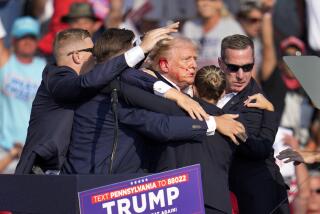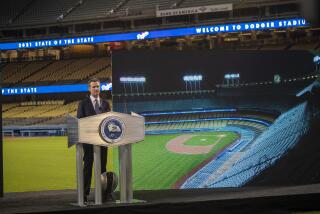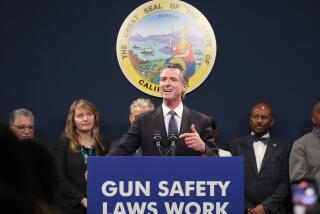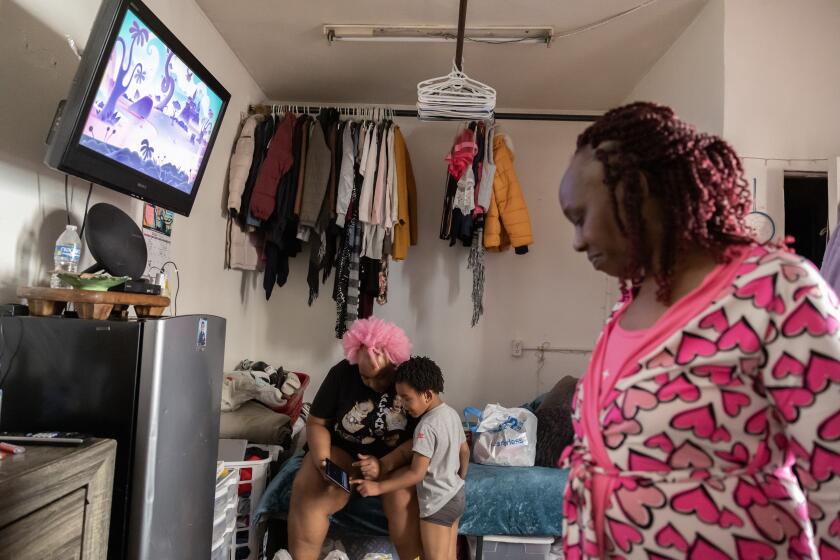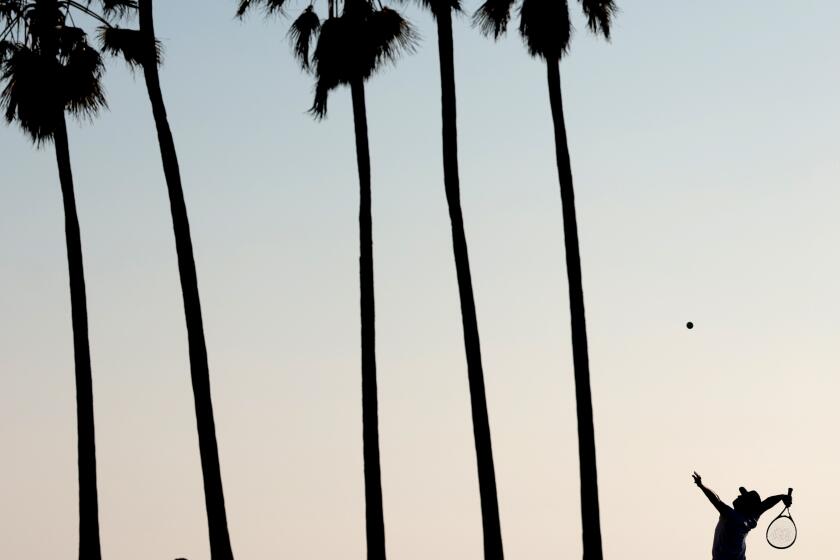Newsom says California would ‘reject’ Trump’s attempts to send military into major cities

In his most outspoken public rebuke of President Trump in months, Gov. Gavin Newsom said Wednesday that California would “reject” any attempts by the White House to deploy the military in major cities to end civil unrest following the killing of George Floyd in Minneapolis police custody.
“It won’t happen,” Newsom said during a visit to Hot & Cool Cafe in Leimert Park. “It’s not going to happen. We would reject it. We would push back against that.”
Dubbing himself a “president of law and order,” Trump threatened Monday to send “thousands and thousands of heavily armed soldiers, military personnel and law enforcement officers” into U.S. cities.
Addressing Trump’s threat for the first time, Newsom called the president’s remarks “just another zig and zag deflection from the administration.” The governor said he was pleased to hear U.S. Defense Secretary Mark Esper also voice opposition to the use of active-duty military forces in law enforcement roles to contain street protests.
Once a frequent Trump critic, Newsom has declined to condemn the president since the COVID-19 pandemic began. The governor has largely described his own silence as a desire to not play politics during a crisis, even as other Democratic governors have taken more combative stances with the White House.
This week, Newsom refused to directly respond to a question about a phone call early Monday between Trump and governors in which the president urged them to crack down harder on protesters.
“I could be part of the daily back and forth in the news cycle and continue to perpetuate the problems that persist in this country,” Newsom said Monday. “Or, I can choose to focus a message that I think is so much more powerful, and I hope has more residence with people watching, and that is: I care more about them than some of the noise I heard on a morning phone call.”
Newsom’s own decision to deploy nearly 2,600 California National Guard troops to Los Angeles, Long Beach, Sacramento, San Diego and other areas over the last week also sparked concerns.
The presence of any military forces in communities that feel victimized by law enforcement may only add to those feelings of fear, said Assemblywoman Sydney Kamlager-Dove (D-Los Angeles).
“I think it’s important for people to recognize that we all are looking through life with very different lenses,” she said.
The state legislator said she discussed the deployment of the Guard troops with Newsom on Wednesday when she joined him in South Los Angeles and said she felt that he was responding to the needs and requests of cities. Mayor Eric Garcetti called for troops Saturday in anticipation of potential violence and looting.
Brian Ferguson, a spokesman for the Governor’s Office of Emergency Services, said Newsom has deployed the Guard only in response to specific requests from local leaders. The troops were originally intended to focus on the protection of critical infrastructure, such as electrical substations and water treatment plants, instead of directly taking the place of local police. But in some instances, depending on direction by law enforcement in a municipality, they are supporting operations on the ground, Ferguson said.
In contrast, Trump has threatened to deploy the military against the will of local leaders.
“If a city or state refuses to take the actions necessary to defend the life and property of the residents, I will deploy the United States military and quickly solve the problem for them,” Trump said Monday.
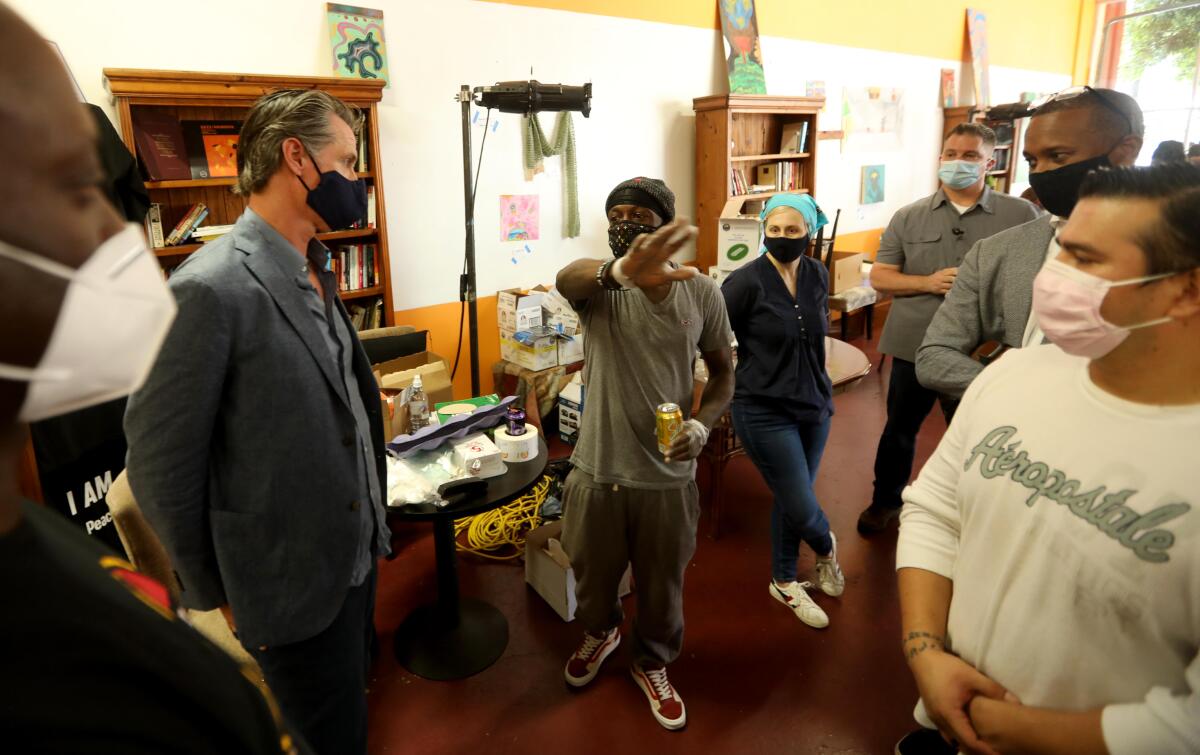
Newsom arrived at the Hot & Cool Cafe in Leimert Park late Wednesday morning, his first appearance in Los Angeles since the protests began last week. The cafe’s owners, Tina Amin and Anthony Jolly, have received some funding from the city to provide meals, but they are also using their own money and donations. They regularly make about 350 meals for older residents and other community members in need.
The governor put together meals alongside volunteers and Kamlager-Dove, state Sen. Holly Mitchell (D-Los Angeles) and Los Angeles County Supervisor Mark Ridley-Thomas. Newsom said he planned to meet with L.A. Mayor Eric Garcetti, Black Lives Matter organizers and the Los Angeles Police Department later in the day.
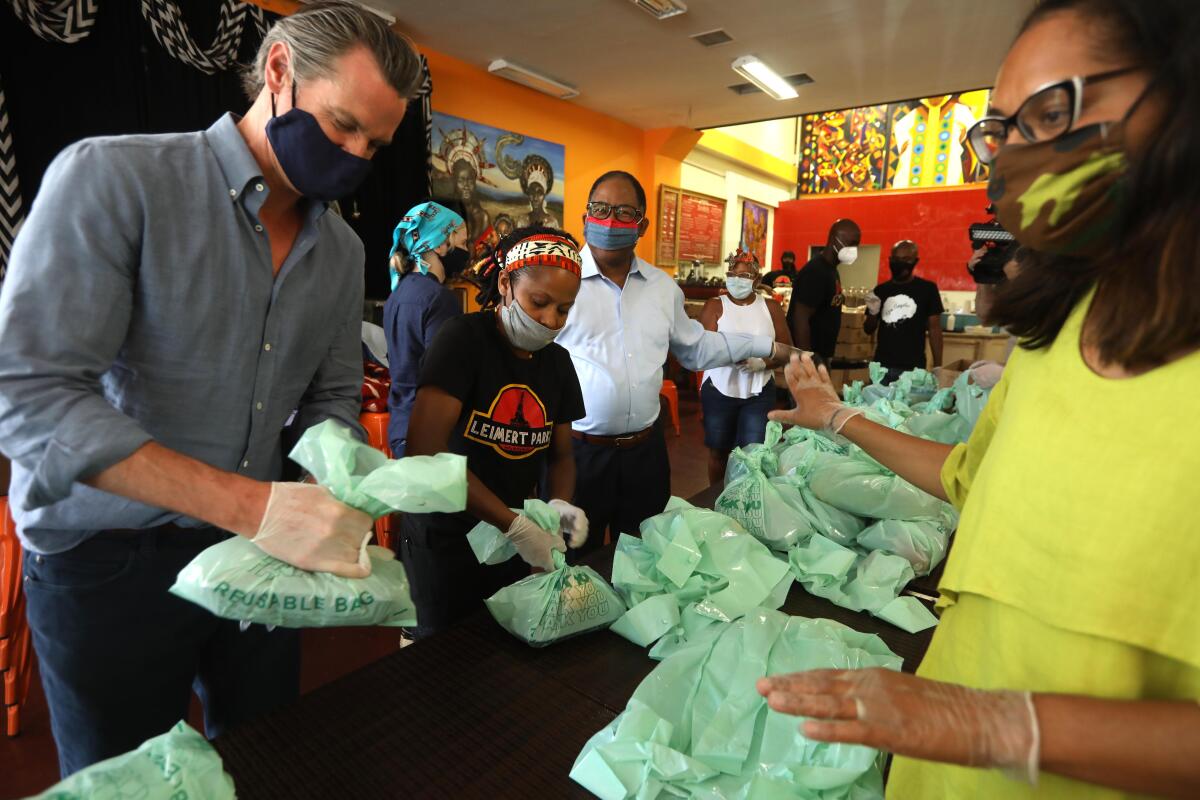
On Tuesday, the governor attended an event hosted by the brother of Stephon Clark, an unarmed black man shot and killed by police in 2018, to clean up downtown Sacramento after a night of looting.
In pictures and videos shared on social media, the governor scrubbed graffiti off a government building and praised Stevante Clark, who has become an activist for reform since his brother’s death, for encouraging peaceful protests in the city.
More to Read
Start your day right
Sign up for Essential California for news, features and recommendations from the L.A. Times and beyond in your inbox six days a week.
You may occasionally receive promotional content from the Los Angeles Times.
